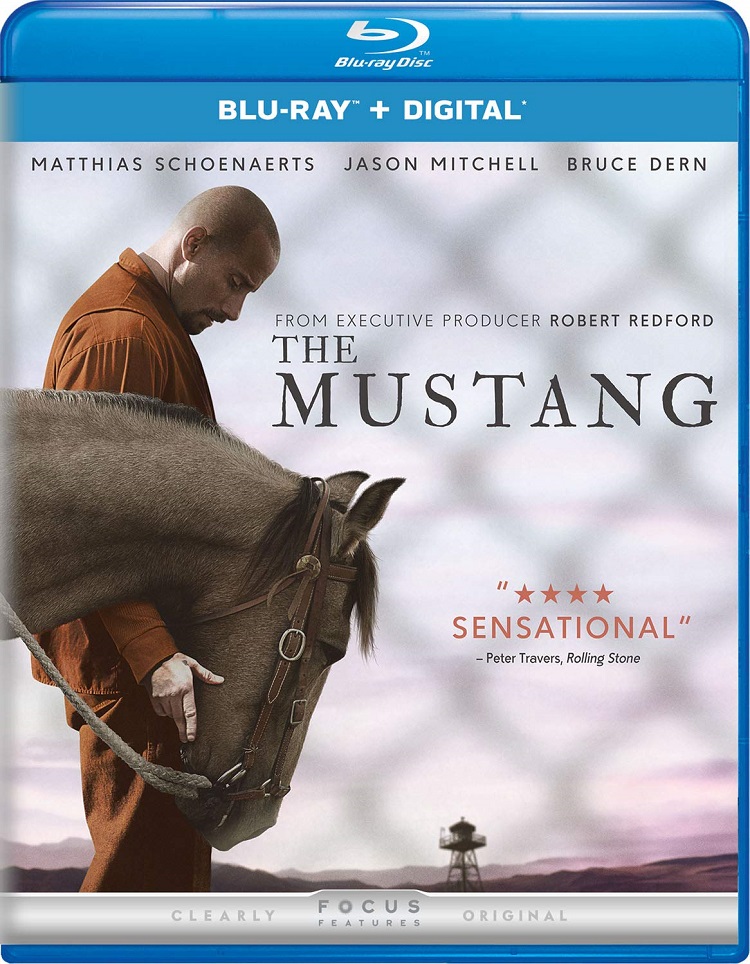
When The Mustang first opens, it seems like it’s going to be a preachy, political demonstration of how endangered wild mustangs currently are. The film’s opening sequence shows a horde of horses being captured, making us believe it’s going to be a glimpse at the system trying to capture them. That is until the sequence cuts to Roman (Matthias Schoenaerts), our main character, waking up from his sleep.
Thanks to that neat editing trick, the theme for the film becomes established. As it turns out, The Mustang is simply about the strong bond between man and animal. It shows us that animals can help souls heal and can even help the most troubled souls find their way. It’s unclear what it is about horses in particular that makes people better themselves. However, director/co-writer Laure de Clermont-Tonnerre never goes into the “how” or the “why.” Instead, she goes into the “what.”
The film follows Roman, who’s a prisoner, as he enters a rehabilitation program that involves training mustangs. As he trains a wild horse that he names Marcus, he begins to experience personal growth. Meanwhile, he attempts to fix the bond between him and his estranged daughter, Martha (Gideon Adlon) and becomes friends with Henry (Jason Mitchell), a fellow inmate and trainer.
It’s established early on that Roman isn’t good with people. But even without the use of dialogue, we can sense his need for a connection. As he first glances at the barn where Marcus is kept in, the camera becomes fixated on his conflicted face. He’s curious about what makes this horse tick and likely tries to bond with it to see if he has better luck with him than he does with human beings. Also, because Roman is a man of few words, he plays into Matthias Schoenaerts’ acting sensibilities.
One of Matthias’ greatest strengths as an actor is his use of physicality. Much like in Rust and Bone where he plays a struggling kickboxer, he lets his fierce punches and brutish swagger demonstrate Roman’s anguish. In addition, Schoenaerts uses his physical prowess to map out Roman’s journey from being intimidatingly withdrawn to compassionate and stern.
That being said, some of the supporting actors manage to leave an impression. Particularly, Jason Mitchell who acts as a form of slight comic relief. Also, Gideon Adlon, who you might remember from last year’s comedy Blockers, is exemplary as Martha. Although she has a small part, she still manages to illustrate a near lifetime of hurt her character has felt.
Both actors are terrific in what is truthfully a showcase for Matthias Schoenaerts. The camera never leaves him and even follows him when the film goes into literal dark places. In the scenes where he’s held up in his prison cell, the brilliant camera work by Ruben Impens has him engulfed in darkness with just a tint of light. Since Roman is on a rough journey, the little light in his prison cell likely symbolizes how there is a light at the end of the dark tunnel he’s walking down.
In conclusion, The Mustang is a poetic and apolitical character study that thrives thanks to its leading performance. It may be armed with restraint since it lacks exposition and relies heavily on Matthias Schoenaerts’ ability to let his face act as a storyteller. But it still proves to be quite effective and is an experience that may linger even after it ends.